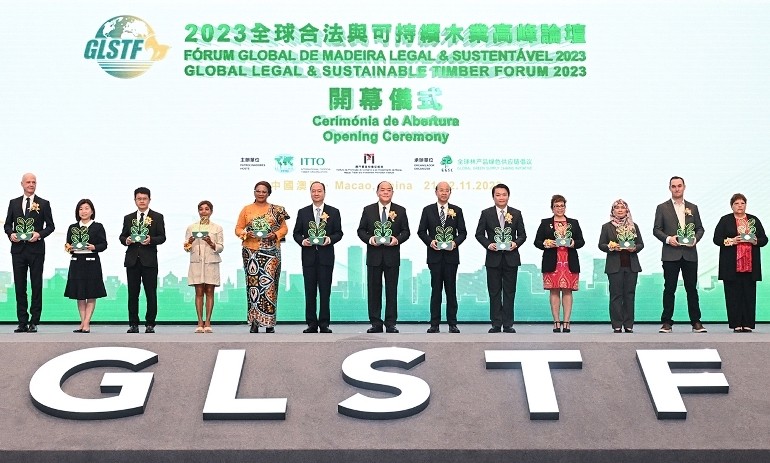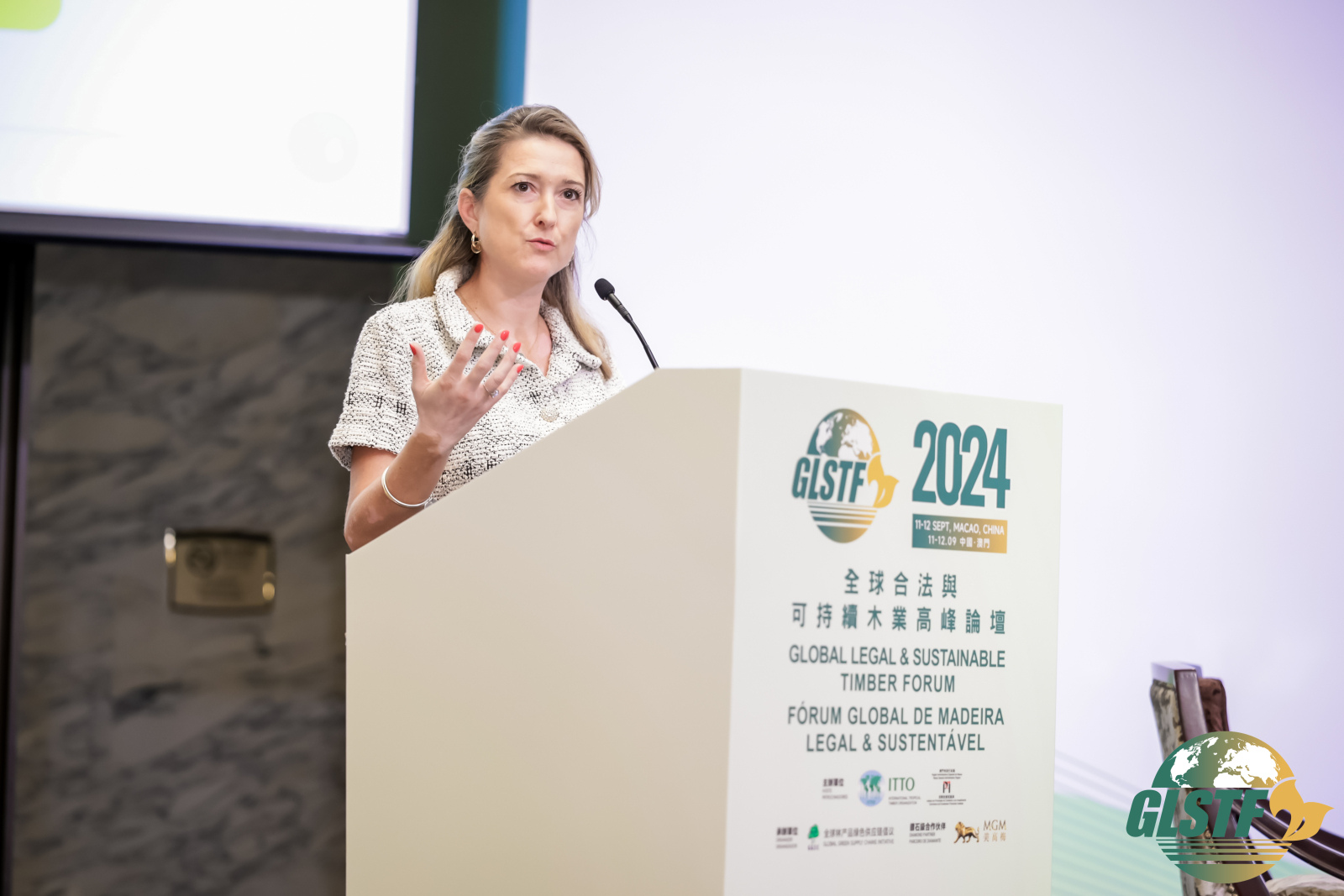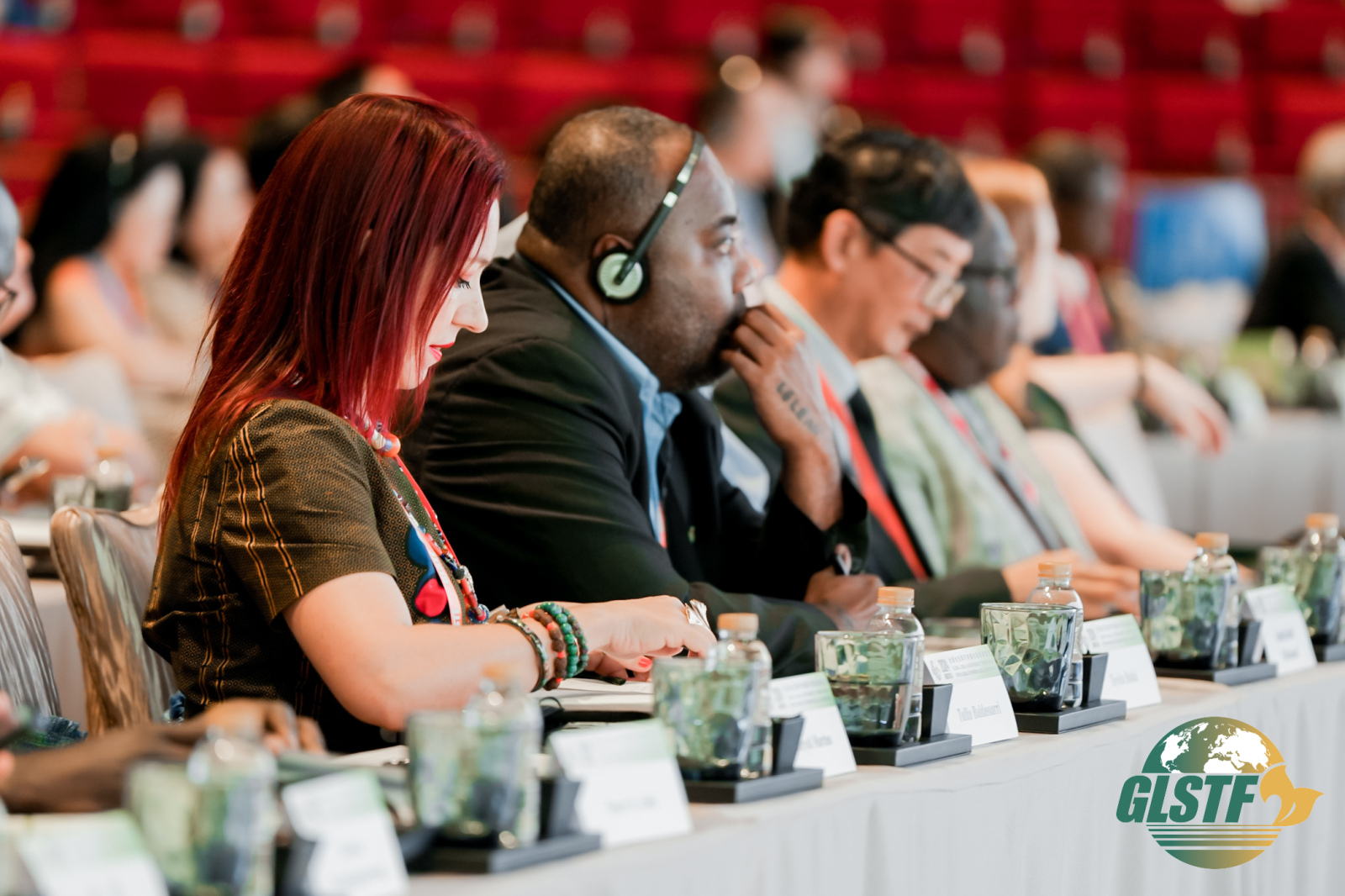

13.09.2024
The GLSTF 2024 Forum, following the first edition in 2023, was also held in Macao, China. The ATIBT jointly organised with the Chinese organisation CTWPDA the specialised sub-forum number 2 entitled "Sustainable timber resources, markets and trade".

On 11 and 12 September 2024, the second Global Legal and Sustainable Timber Forum (GLSTF 2024) was held in Macau on the theme “Together towards reliable and effective global timber supply chains”, aiming to boost trade and the sustainable development of the tropical timber industry, in a context still marked by lacklustre tropical timber markets.
The GLSTF was organised at a general level by ITTO*, GGSC**, and IPIM***.
GLSTF 2024 was a two-part event, with a main Forum on 11 September and four specialist sub-forums on 12 September.
The specialised sub-forums were organised by the partner agencies, which contributed to the GLSTF 2024 theme through the following topics: (1) legality and sustainability of timber; (2) sustainable timber resources, markets and trade; (3) advanced technologies and machinery for timber processing; and (4) green finance and innovative facilitation measures.
The GTI Global Timber Index and blockchain-based timber traceability were the focus of official messages at the opening session. B2B meetings were also organised.
Specialised sub-forum 2: Sustainable wood resources, markets and trade
The China Timber & Wood Products Distribution Association (CTWPDA) and the ATIBT, as partner agencies, co-organised the specialised sub-forum on “Sustainable timber resources, markets and trade”. The sub-forum aimed to discuss key issues such as sustainable development and use of the world's timber resources, market expansion and trade facilitation.
The first sub-forum was held in Macau on 22 November 2023.
The ATIBT's contribution aimed to emphasise that, even in a deteriorated context, the importance of wood in the European construction market is growing, driven by the bioeconomy and the growing recognition of wood's qualities in the housing sector, over and above its purely environmental advantages. According to CNDB projections, wood should account for 35% of construction materials, underlining its growing importance.

Benoît Jobbé-Duval. Credit GLSTF
In addition, Africa's domestic markets play a crucial role in the tropical timber trade, making it an important market for local companies. Special Economic Zones (SEZs) offer significant investment opportunities, providing an environment conducive to growth and innovation. These zones can attract investment in wood processing facilities, stimulating local economies and improving the value chain.
In addition, the progressive ban on exporting logs from the Republic of Congo or Cameroon, following Gabon's decision in 2010, is intended in principle to ensure a regular supply of domestic markets, thereby strengthening the local timber industry. This policy should encourage the development of local processing industries, by adding value to raw timber before it is exported.
The growing emphasis on sustainability and legality in the timber trade is driving the market. Regulations such as the EU Deforestation Regulation (EUDR) and the Lacey Act in the US require companies to guarantee the legality of their timber sources. This has led to the adoption of traceability and certification systems, which enhance the transparency and credibility of the supply chain. By recognising the interplay of various factors, including the importance of the domestic market, investment opportunities in SEZs and regulatory environments, companies can develop strategies to address challenges and capitalise on emerging trends. This holistic understanding is essential to maintain competitiveness and promote sustainable growth in the wood industry.
Certifications such as FSC (Forest Stewardship Council) and PEFC (Programme for the Endorsement of Forest Certification) play an essential role in promoting sustainable forest management (SFM). These certifications guarantee that forest management practices meet rigorous environmental, social and economic standards, thereby promoting sustainable development.
The ATIBT's message was also that certification is beneficial for better positioning of companies in the timber sector. It is important for positioning themselves commercially, but also for reducing the risks inherent in the sector.

Caroline Duhesme. Credit GLSTF
Exploring how to use new technologies was also one of the aims of this sub-forum, and the prospects offered by reconstituted solid wood were highlighted.
The development of techniques for reconstituting solid wood by gluing can make a major contribution to meeting a number of existing challenges in the sector, in particular :
The aim is to adopt a "product" approach rather than a "species" approach. Laminated timber using LKTS offers promising prospects. For example, these technologies make it possible to make effective use of smaller, lower-quality logs that are poorly shaped or have defects. They should also make it possible to improve material yields.
At a commercial level, laminated wood :
 Credit GLSTF
Credit GLSTF
*ITTO: International Tropical Timber Organisation
**GGCS: Global Green Supply Chain
***IPIM: Macau Institute for the Promotion of Industry and Commerce